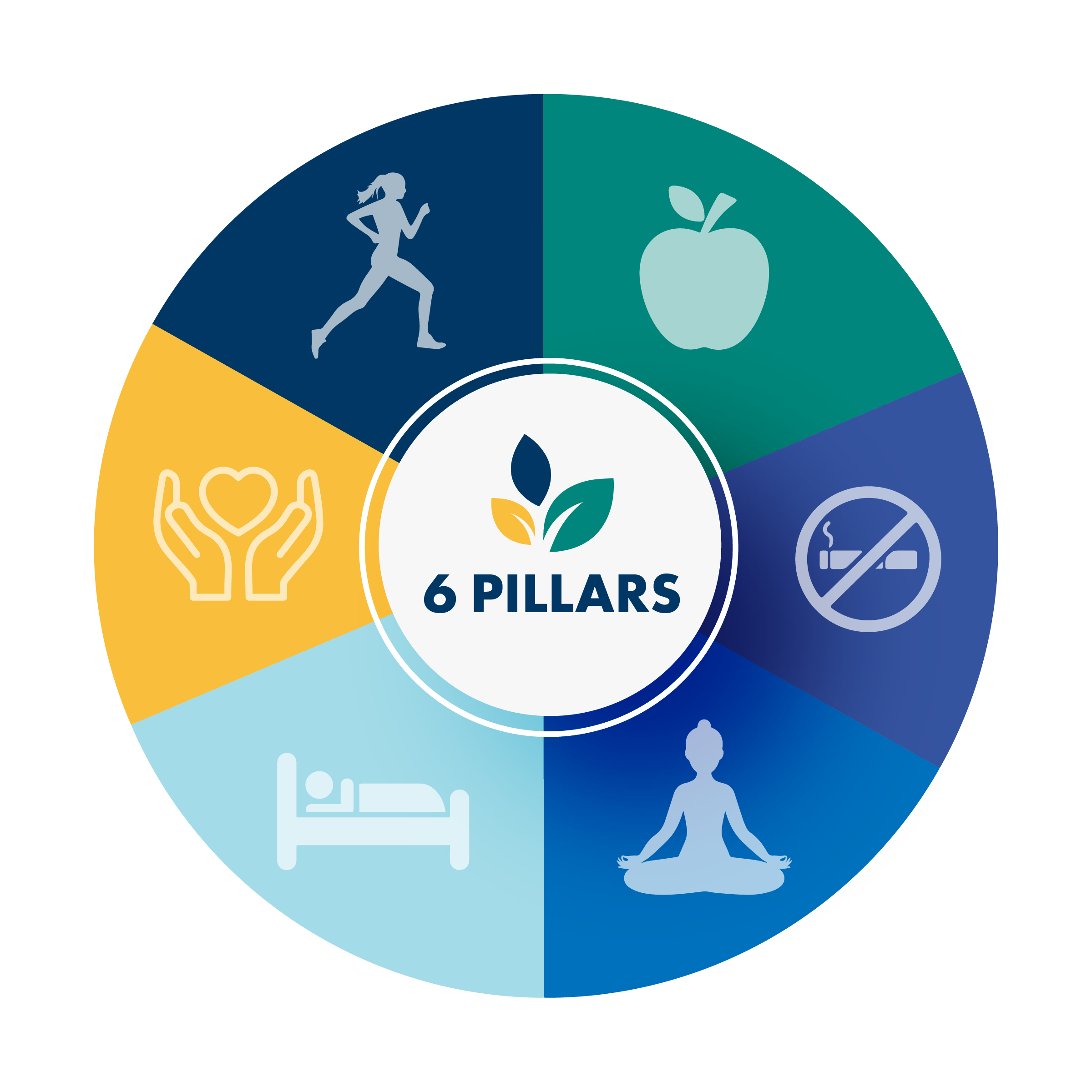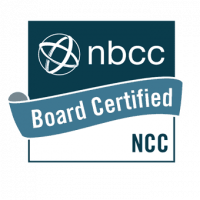Treating Behavioral Addictions in Frisco, Texas
Behavioral addictions, such as gambling, gaming, and internet use, are on the rise in Frisco, Texas, with significant negative consequences for individuals’ personal and professional lives, relationships, mental health, and overall well-being. Effective behavioral addiction treatment is essential, and Frisco offers a variety of approaches and resources.
What is a Behavioral Addiction?
Behavioral addictions, also known as process addictions, are a type of addiction that involves a compulsive need to engage in a particular behavior, even when it has negative consequences. Examples of behavioral addictions include gambling, gaming, internet use, shopping, and sex.
How to understand behavioral addictions
People with behavioral addictions often experience intense cravings and loss of control over their behavior. This can lead to negative consequences such as financial problems, relationship issues, social isolation, and even physical and mental health problems. In severe cases, behavioral addictions can lead to job loss, academic problems, and legal trouble.
The importance of early intervention with addictions
Behavioral addictions are a serious mental health issue, but early intervention and treatment can help people overcome their addiction and minimize the negative consequences in their lives. There are a variety of resources available to help people with behavioral addictions, including individual therapy, support groups, and medication. If you or someone you know is struggling with a behavioral addiction, please reach out for help.
Types of Behavioral Addictions
Behavioral addictions are a diverse group of addictions that involve a compulsive need to engage in a particular behavior, even when it has negative consequences. Examples of behavioral addictions include:
- Internet addiction: Excessive internet use that interferes with daily life, such as work, school, relationships, and physical health.
- Gaming addiction: Excessive gaming that interferes with daily life, such as work, school, relationships, and physical health.
- Gambling addiction: Uncontrollable betting habits that can lead to financial problems, legal trouble, and relationship problems.
- Shopping addiction: An overpowering urge to shop excessively, even when it leads to financial problems and debt.
- Sex addiction: Compulsive sexual behaviors that can result in adverse consequences, such as sexually transmitted infections, relationship problems, and job loss.
- Substance abuse: The compulsive use of drugs or alcohol, which can lead to physical dependence, addiction, and a variety of health problems.
Other types of behavioral addictions include:
- Food addiction: Excessive eating of unhealthy foods, even when it leads to weight gain and health problems.
- Work addiction: Working excessively, even when it interferes with personal relationships and health.
- Exercise addiction: Excessive exercise, even when it leads to injuries or other health problems.
- Porn addiction: Excessive watching of pornography, even when it interferes with relationships and work.
- Relationship addiction: A compulsive need to be in a relationship, even when it is unhealthy or abusive.
Causes of behavioral addictions
The causes of behavioral addictions are complex and likely involve a combination of genetic, environmental, and psychological factors. Some people may be more genetically predisposed to developing behavioral addictions, while others may be more vulnerable due to environmental stressors such as a history of trauma. Psychological factors such as impulse control difficulties and underlying mental health conditions can also play a role.
Impact of behavioral addictions
Behavioral addictions can have a significant impact on a person’s life. Excessive engagement in addictive behaviors can lead to:
- Financial problems
- Relationship problems
- Social isolation
- Physical health problems
- Mental health problems, such as anxiety and depression
Megan Corrieri: Award-Winning Behavioral Addiction Therapist in Frisco, TX

MS, LPCC, LPC, NCC
Therapist | Licensed Professional Clinical Counselor | Nationally Certified Counselor
I have 15+ years of experience as a behavioral addiction counselor, helping people overcome their addictions and achieve recovery. My personalized approach focuses on building trust, resilience, and emotional intelligence. Don’t hesitate to reach out to me to schedule your first session and start your journey to a brighter future.
Megan is fully licensed therapist in the states of Minnesota and Texas. NorthStar Counseling & Therapy is located at 2591 Dallas Parkway STE 300 in Frisco, TX
Behavioral Addiction Treatment via Telehealth: What Works?
Behavioral addiction treatment via telehealth has become increasingly popular in our digital age. It offers a convenient and effective way to receive therapy and support from the comfort of your home.
There are a variety of telehealth treatment approaches available, including CBT, motivational interviewing, mindfulness-based therapies, and 12-step support groups. It is important to choose the approach that is right for you, based on your individual needs and preferences.
What Is Telehealth Treatment for Behavioral Addictions?
Telehealth treatment for behavioral addictions is a convenient and effective way to receive therapy and support from the comfort of your home. Using video conferencing or other online platforms, you can connect with a qualified therapist who can help you overcome your addiction.
What Are the Benefits of Telehealth Treatment for Behavioral Addictions?
Telehealth treatment for behavioral addictions offers a number of benefits, including:
- Convenience: You can access therapy from anywhere, anytime, without having to travel to a therapist’s office.
- Affordability: Telehealth treatment is often more affordable than traditional in-person therapy.
- Privacy: Telehealth treatment can provide a more discreet and confidential setting for therapy.
What Are the Different Types of Telehealth Treatment for Behavioral Addictions?
There are a variety of telehealth treatment approaches available for behavioral addictions, including:
- Cognitive-Behavioral Therapy (CBT): CBT helps you identify and change the thoughts and behaviors that contribute to your addiction.
- Motivational Interviewing: Motivational interviewing helps you explore your motivations for change, increase your commitment to recovery, and set achievable goals.
- Mindfulness-Based Therapies: Mindfulness-based therapies help you develop awareness of your addictive behaviors and cultivate healthier responses.
- 12-Step Support Groups: 12-step support groups provide a sense of community and shared experience, where you can work through your addiction with peer support and guidance.
How to Find Telehealth Treatment for Behavioral Addictions in Frisco, Texas
You have come to the right place if you are trying to find telehealth treatment in Frisco, TX. NorthStar Counseling & Therapy offers tele-therapy specifically for behavioral addictions.
How to Choose the Right Telehealth Treatment Approach for Behavioral Addictions
The best telehealth treatment approach for you will depend on your individual needs and preferences. When choosing a telehealth treatment approach, consider the following factors:
- The type of behavioral addiction you have
- Your treatment goals
- Your learning style
- Your budget
What to Expect from Telehealth Treatment for Behavioral Addictions
Telehealth treatment for behavioral addictions typically involves meeting with a therapist on a regular basis for individual therapy sessions. You may also participate in group therapy sessions or attend online support groups.
During your therapy sessions, your therapist will help you develop a personalized treatment plan that addresses your specific needs. You may also learn coping skills, strategies for managing cravings, and how to prevent relapse.
Telehealth is a convenient and effective way to receive treatment for behavioral addictions because of it’s immediate access. If you are struggling with a behavioral addiction, consider telehealth treatment as a way to get the support you need to overcome your addiction and achieve recovery.
How does behavioral therapy modification work?
Behavioral therapy modification (BTM) is a type of psychotherapy that helps individuals overcome negative behaviors and develop more positive ones. It is based on the idea that behavior is learned, and can therefore be unlearned and replaced with healthier behaviors.
BTM is a collaborative process between the therapist and the individual. The therapist helps the individual to identify their specific goals for therapy, as well as the triggers and stressors that contribute to their negative behaviors. The therapist then develops a treatment plan that is tailored to the individual’s needs and goals.
What is Behavioral Therapy Modification?
Behavioral therapy modification (BTM) is a type of psychotherapy that helps individuals overcome negative behaviors and develop more positive ones. It is based on the idea that behavior is learned, and can therefore be unlearned and replaced with healthier behaviors.
How Does BTM Work?
BTM begins with a thorough assessment of the individual’s behaviors, thoughts, and emotions. Based on this assessment, the therapist will develop a treatment plan that is tailored to the individual’s specific needs and goals.
BTM typically involves several steps, including:
- Setting goals: The therapist and individual work together to set specific, achievable goals for the therapy.
- Identifying triggers: The therapist helps the individual identify the situations, people, or emotions that trigger the negative behavior.
- Creating a safety plan: The therapist helps the individual develop a plan for how to avoid or cope with triggers in a healthy way.
- Developing coping skills: The therapist teaches the individual new, healthier ways of coping with triggers and stressors.
- Reinforcement: The therapist provides positive reinforcement and encouragement for the individual’s progress towards their goals.
- Practice: The individual practices the new behaviors and coping skills in real-life situations, with the support and guidance of the therapist.
- Maintenance: The individual continues to use the new behaviors and coping skills even after the therapy is complete, in order to maintain their progress and prevent relapse.
Benefits of BTM
BTM is a collaborative process that empowers individuals to take control of their behavior and develop new, healthier habits. It can be effective for a wide range of behavioral issues, including addiction, anxiety, depression, and other mental health conditions.
Some of the benefits of BTM include:
- It is a relatively short-term therapy, with most individuals experiencing significant improvement within a few weeks or months.
- It is a goal-oriented therapy, which means that the individual is actively involved in setting and achieving their goals.
- It is a practical therapy, which means that the individual learns new skills and strategies that they can use in their everyday life.
- It is a personalized therapy, which means that the treatment plan is tailored to the individual’s specific needs and goals.
If you are struggling with a behavioral issue, find out how BTM may be a helpful option for you.
Ten Questions to Ask a Behavioral Therapist
These are the top 10 questions to ask your therapist before starting treatment with them. To help make your decision. We have answered each question for you.
- What is your educational background and training in treating behavioral addictions?
- Megan has an expert background in behavioral addictions. Fresh out of graduate school, Megan began her career in treating level 3 violent offenders with sexual addictions. Her program had a 100% success rate in rehabilitation for those completing the therapy program successfully.
- How many years of experience do you have treating clients with similar behavioral addictions to mine?
- Megan Corrieri has over 16 years in treating all forms of addictions in both teens and adults.
- What is your treatment approach or therapy style for addressing behavioral addictions
- We would use an approach that would be best for you as an individual. Often we find the approaches of CBT, Talk Therapy and Behavioral Modification Techniques to be the most effective.
- How do you tailor your treatment plans to meet the specific needs and goals of each client?
- First we would conduct a thorough assessment of your unique needs, goals, and circumstances. Based on this assessment, we would develop a personalized treatment plan that addresses your specific addiction, underlying issues, and strengths.
- Can you provide any success stories or testimonials from clients who have overcome their behavioral addictions through your treatment?
- As a duty to our clients confidentiality, we have not received the permission to share a specific client success story. You can take a look at our testimonials and reviews. We can say in a general sense that if you complete the therapy program, your chance of success is 98%+.
- How do you incorporate family, friends, or support systems in the treatment process?
Incorporating family and friends in my treatment can be helpful for long-term recovery. Some ways to involve them include:
- Participating in family therapy to improve communication and rebuild trust.
- Attending couples counseling, if applicable, to address relationship issues.
- Sharing educational resources to help them better understand my addiction and recovery.
- Involving them in my treatment planning, goal-setting, and progress reviews with my consent.
- Helping them learn skills like active listening, boundary setting, and effective communication.
- Inviting them to join occasional individual therapy sessions to discuss specific issues and develop support strategies.
- Strengthening my relationships with supportive individuals during my recovery process.
- How do you address co-occurring mental health issues, such as anxiety or depression, that may be contributing to the addiction?
- If we recognize this to be the case, we would incorporate evidence-based therapies that address both the addiction and the mental health issue simultaneously.
- How do you measure progress and success in your treatment program, and how often will we review these together?
- We will use regular assessments, your feedback, and our own observations to evaluate your progress. We also routinely review your goals within each session. Identify the successes and areas for improvement.
10 Common Mistakes to Avoid in Behavioral Counseling Therapy
Behavioral counseling can be a very effective treatment for behavioral addictions. However, there are some factors that can make it less effective. Here are the 10 most common factors that can make behavioral counseling less effective:
- Lack of motivation: If a client is not motivated or ready to change, they are less likely to succeed in therapy.
- Therapist-client mismatch: It is important to find a therapist who you feel comfortable with and who has the right approach for you. If you don’t feel comfortable with your therapist, you are less likely to be honest and open with them, which can make therapy less effective.
- Inadequate experience or training: It is important to choose a therapist who has experience and training in treating behavioral addictions.
- Untreated co-occurring disorders: If you have other mental health conditions, such as anxiety or depression, they need to be treated in order for behavioral counseling to be effective.
- Insufficient support system: Having a supportive family, friends, and peers can be very helpful during recovery. If you don’t have a strong support system, it can be more difficult to stay on track.
- Unrealistic expectations: Recovery from addiction takes time and effort. If you expect to change overnight, you are likely to be disappointed. It is important to set realistic expectations for the recovery process.
- Inconsistent attendance or commitment: It is important to attend therapy sessions regularly and to be committed to the process. If you are not consistent with your attendance or commitment, you are less likely to succeed.
- Inadequate aftercare or follow-up: Once you have completed therapy, it is important to have a plan in place to maintain your progress. This may include attending support groups or meeting regularly with a therapist. Without proper aftercare, you are more likely to relapse.
- Environmental factors: Stressful life events, social pressure, or an environment that enables your addiction can make it difficult to stay sober. It is important to identify and address these factors in order to maintain recovery.
- Biological factors: In some cases, genetic or neurological factors may contribute to addiction. This can make it more challenging to treat through behavioral counseling alone.
If you are struggling with a behavioral addiction, it is important to seek professional help. A therapist can help you to identify the factors that are contributing to your addiction and develop a treatment plan that is right for you.
How to Avoid Relapse After Treatment: 9 Tools and Resources
After completing behavioral addiction therapy, various tools and resources may be provided to help prevent relapse and maintain long-term recovery. These may include:
- Aftercare planning: Before therapy concludes, your therapist will work with you to develop a personalized aftercare plan that includes strategies for coping with triggers, stress management, and maintaining a healthy lifestyle.
- Support groups: Encouraging clients to continue attending support groups like 12-step meetings, SMART Recovery, or other relevant groups can provide ongoing peer support, accountability, and a sense of community.
- Booster sessions: Periodic follow-up appointments with your therapist can help reinforce learned skills, address new challenges, and evaluate progress.
- Self-help materials: You will be given resources like books, worksheets, or apps to help you continue practicing skills and strategies learned during therapy.
- Mindfulness practices: Encouraging clients to maintain a regular mindfulness practice, such as meditation or yoga, can help manage stress and increase self-awareness.
- Coping strategies: Clients should continue using healthy coping strategies learned during therapy to deal with triggers, cravings, and negative emotions.
- Social support: Maintaining a strong support network of family, friends, and peers who understand the recovery process is crucial for long-term success.
- Monitoring: Encouraging clients to monitor their thoughts, feelings, and behaviors regularly can help them recognize early warning signs of potential relapse and take appropriate action.
- Access to professional help: Providing clients with information on how to access additional counseling or treatment services if needed can be helpful for maintaining recovery.
Ultimately, the specific tools and resources provided will depend on the individual’s needs, preferences, and the approach taken during therapy. It is essential for clients to stay engaged with their aftercare plan and maintain open communication with their support network to minimize the risk of relapse.
What is the expected duration of treatment for someone with addictions?
The expected duration of treatment for behavioral addictions can vary depending on a number of factors, including the type of addiction, the severity of the addiction, and the individual’s response to treatment. However, most behavioral addictions require long-term treatment, typically lasting for several months or even years.
Some of the factors that can influence the duration of treatment include:
- The type of addiction. Some behavioral addictions, such as gambling addiction, can be more difficult to treat and may require longer-term treatment.
- The severity of the addiction. The more severe the addiction, the longer it may take to treat.
- The individual’s response to treatment. Some people respond to treatment more quickly than others.
- The availability of resources and support. Access to affordable treatment and supportive relationships can help people recover more quickly.
It is important to note that recovery from behavioral addiction is a lifelong process. Even after completing treatment, people may need to continue to use coping skills and strategies to prevent relapse.
Here is a more detailed breakdown of the expected duration of treatment for some common behavioral addictions:
| Behavioral Addiction | Expected Duration of Treatment | Additional Information |
|---|---|---|
| Gambling addiction | At least 6 months, and some people may need longer-term treatment. | Gambling addiction can be a very difficult addiction to treat, as it is often associated with significant financial and relationship problems. Treatment typically involves a combination of individual and group therapy, as well as support groups. |
| Internet addiction | At least 3 months, and some people may need longer-term treatment. | Internet addiction can be a problem for people of all ages, but it is especially common among young people. Treatment typically involves helping individuals to manage their time online, develop healthy coping skills, and build relationships outside of the internet. |
| Shopping addiction | At least 6 months, and some people may need longer-term treatment. | Shopping addiction can be a very difficult addiction to treat, as it is often associated with underlying emotional problems. Treatment typically involves helping individuals to understand the root of their addiction, develop healthy coping skills, and manage their finances. |
| Eating disorders | Can vary depending on the severity of the disorder. Some people may need short-term treatment, while others may need longer-term treatment. | Eating disorders are complex mental illnesses that can have serious physical and emotional consequences. Treatment typically involves a combination of individual and group therapy, as well as medical care. |
| Substance use disorders | At least 3 months, and most people will need longer-term and ongoing treatment. | Substance use disorders can include addiction to alcohol, drugs, and other substances. Treatment typically involves a combination of individual and group therapy, as well as support groups. |
Get Started With Behavioral Therapy Online Today
We will create a personalized treatment plan for you that will address your unique needs and goals. This will empower you to make lasting changes and embrace a more fulfilling life. Let NorthStar Counseling & Therapy guide you on the path to wellness and personal growth.
Ready to take the first step towards a more fulfilling life? Schedule a free consultation today with one of our experienced therapists to learn more about how behavioral therapy can help you achieve your goals.
Here are some additional expert and helpful resources for information on behavioral therapy:
- The American Psychological Association. (2013). Diagnostic and statistical manual of mental disorders (5th ed.). American Psychiatric Publishing.
- Robbins, T. W., & Clark, L. (2015). Behavioral addictions. Current Opinion in Neurobiology, 30, 66-72.
- Petry, N. M., Zajac, K., & Ginley, M. K. (2018). Behavioral addictions as mental disorders: To be or not to be?. Annual Review of Clinical Psychology, 14, 399-423.
- Alavi, S. S., Ferdosi, M., Jannatifard, F., Eslami, M., Alaghemandan, H., & Setare, M. (2012). Behavioral addiction versus substance addiction: Correspondence of psychiatric and psychological views. International Journal of Preventive Medicine, 3(4), 290-294.
- Yau, Y. H., & Potenza, M. N. (2015). Gambling disorder and other behavioral addictions: Recognition and treatment. Harvard Review of Psychiatry, 23(2), 134-146.








